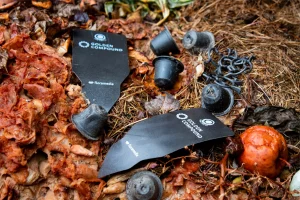Heute ist Earth Overshoot Day – der Tag, an dem die Menschheit alle natürlichen Ressourcen verbraucht hat, die die Erde innerhalb eines Jahres regenerieren kann. Ab diesem Zeitpunkt leben wir sozusagen „auf Pump“ und zehren von den Ressourcen künftiger Generationen. Dieser Tag rückt jedes Jahr früher nach vorne – ein besorgniserregendes Zeichen dafür, dass unser Konsum- und Produktionsverhalten nicht nachhaltig ist. Doch was genau bedeutet der Earth Overshoot Day, und was können wir tun, um ihn nach hinten zu verschieben?
Was ist der Earth Overshoot Day?
Der Weltüberlastungstag wird jährlich von der Organisation Global Footprint Network berechnet. Er markiert den Moment, an dem der ökologische Fußabdruck der Menschheit die Kapazität unseres Planeten übersteigt. Dazu zählen Faktoren wie:
CO₂-Emissionen, die schneller ansteigen, als sie von Wäldern und Ozeanen absorbiert werden können.
Übermäßige Landnutzung für Landwirtschaft und Städtebau.
Überfischung und Waldrodung, die natürliche Ressourcen schneller erschöpfen, als sie nachwachsen.
Die Konsequenzen sind bereits heute sichtbar: Klimawandel, Artensterben und eine massive Belastung unserer Ökosysteme. Um das Gleichgewicht wiederherzustellen, müssten wir eigentlich 1,8 Erden zur Verfügung haben – die wir natürlich nicht besitzen.

Was muss sich ändern?
Um den Earth Overshoot Day nach hinten zu verschieben, sind drastische Veränderungen in unserem Wirtschaftssystem und in unserem Konsumverhalten nötig. Dazu gehören:
Kreislaufwirtschaft statt Wegwerfmentalität: Produkte müssen so designt werden, dass sie wiederverwertbar, reparierbar und recycelbar sind.
Reduktion fossiler Rohstoffe: Erdölbasierte Kunststoffe und Materialien müssen durch biobasierte, ressourcenschonende Alternativen ersetzt werden.
Nachhaltige Landwirtschaft: Weniger Monokulturen, weniger Chemieeinsatz und ein stärkerer Fokus auf regenerative Anbaumethoden.
Energieeffizienz und erneuerbare Energien: Umstellung auf Solar-, Wind- und Wasserkraft sowie der Ausbau von Energiespeichersystemen.
Bewusstes Konsumverhalten: Weniger Überproduktion, längere Produktlebenszyklen und ein generelles Umdenken bei Verbrauchern und Unternehmen.
Golden Compound: Nachhaltigkeit mit Sonnenblumenkernschalen
Bei Golden Compound setzen wir genau hier an. Unser Ansatz ist es, Abfallstoffe in wertvolle Rohstoffe zu verwandeln und damit aktiv zur Ressourcenschonung beizutragen. Ein Paradebeispiel sind unsere Sonnenblumenkernschalen, die wir als Füllstoff in Kunststoffen verwenden.
Warum Sonnenblumenkernschalen?
Ein Nebenprodukt wird wertvoll: Sonnenblumenkernschalen fallen bei der Lebensmittelproduktion in großen Mengen an. Statt sie zu entsorgen, nutzen wir sie als nachhaltigen Rohstoff.
Ressourcenschonend und umweltfreundlich: Durch den Einsatz dieser Naturfasern reduzieren wir den Verbrauch von (Bio)Kunststoffen erheblich.
CO₂-Einsparung: Die Produktion unserer Biowerkstoffe verursacht deutlich weniger Treibhausgase im Vergleich zu konventionellen Kunststoffen.
Kreislauffähigkeit: Unsere Materialien sind nicht nur biobasiert, sondern auch recycelbar oder sogar biologisch abbaubar – ein Schritt in Richtung Kreislaufwirtschaft.
Beispiele für nachhaltige Produkte
Unsere Materialien kommen unter anderem in Pflanztöpfen, Home-Compost-Kaffeekapseln, Lunchboxen und Verpackungslösungen zum Einsatz. Sie zeigen, dass Nachhaltigkeit und hohe Funktionalität perfekt miteinander vereinbar sind.
Wie wir den Earth Overshoot Day verschieben können
Jedes Unternehmen, jeder Mensch und jede politische Entscheidung trägt dazu bei, wie stark wir unseren Planeten belasten. Bei Golden Compound glauben wir fest daran, dass innovative Werkstoffe eine der Schlüssellösungen sind. Mit unseren biobasierten Compounds, die auf nachwachsenden Rohstoffen wie Sonnenblumenkernschalen und Maisstärke (im PBS) basieren, leisten wir einen messbaren Beitrag, um den Verbrauch endlicher Ressourcen zu reduzieren.
Aber auch jeder und jede Einzelne kann helfen: durch bewusstes Einkaufen, das Vermeiden von Einwegplastik, die Wahl von langlebigen Produkten und das Recycling. Nur wenn wir gemeinsam handeln, können wir erreichen, dass der Earth Overshoot Day wieder später im Jahr stattfindet.
Nachhaltigkeit ist kein Trend, sondern Notwendigkeit
Der heutige Earth Overshoot Day ist ein Warnsignal – ein klarer Beweis dafür, dass wir unsere Lebens- und Produktionsweisen überdenken müssen. Wir zeigen wie sich mit innovativen, ressourcenschonenden Materialien ein Unterschied machen lässt. Unsere Vision ist eine Welt, in der Abfälle zu wertvollen Rohstoffen werden und die Natur entlastet wird.
Lasst uns gemeinsam dafür sorgen, dass der Earth Overshoot Day jedes Jahr ein Stück weiter in die Zukunft rückt – für uns und für kommende Generationen.




